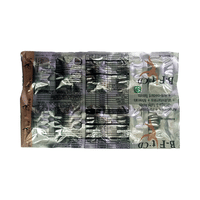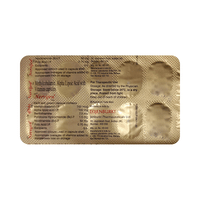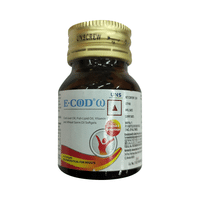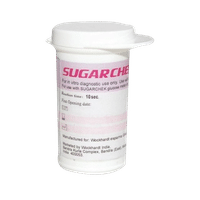food interaction for Rosizon Tablet
alcohol interaction for Rosizon Tablet
pregnancy interaction for Rosizon Tablet
lactation interaction for Rosizon Tablet
food
alcohol
pregnancy
lactation
Rosizon 4mg Tablet may be taken with or without food, but it is better to take it at a fixed time.
None
None
CAUTION
It is unsafe to consume alcohol with Rosizon 4mg Tablet.
UNSAFE
Rosizon 4mg Tablet may be unsafe to use during pregnancy. Although there are limited studies in humans, animal studies have shown harmful effects on the developing baby. Your doctor will weigh the benefits and any potential risks before prescribing it to you. Please consult your doctor.
CONSULT YOUR DOCTOR
Information regarding the use of Rosizon 4mg Tablet during breastfeeding is not available. Please consult your doctor.
CONSULT YOUR DOCTOR
SALT INFORMATION FOR Rosizon 4mg Tablet
Rosiglitazone(4mg)
Rosizon tablet uses
{med_name} is used in the treatment of type 2 diabetes mellitus.
How rosizon tablet works
Rosizon 4mg Tablet is an anti-diabetic medication. It works by increasing the body's sensitivity to insulin, a natural substance that helps control blood sugar levels.
Common side effects of rosizon tablet
Blurred vision, Numbness, Bone fracture, Respiratory tract infection
SUBSTITUTES FOR Rosizon Tablet
14 Substitutes
14 Substitutes
Sorted By
 Rs. 86.89save 17% more per Tablet
Rs. 86.89save 17% more per Tablet Rs. 10312.50pay 9712% more per Tablet
Rs. 10312.50pay 9712% more per Tablet Rs. 55.69save 47% more per Tablet
Rs. 55.69save 47% more per Tablet Rs. 56.53save 46% more per Tablet
Rs. 56.53save 46% more per Tablet Rs. 50.82save 52% more per Tablet
Rs. 50.82save 52% more per Tablet
Expert advice FOR Rosizon Tablet
- Rosiglitazone has been withdrawn from the market due to an increased risk of heart attack and heart-related deaths.
- Rosiglitazone helps to control blood sugar level and avoid long-term complications.
- Full effects may be visible after several weeks of starting Rosiglitazone. Keep taking it as prescribed by your doctor.
- Weight gain, headache, and swelling due to fluid build-up may occur.
- Notify your doctor if you experience shortness of breath, heart problems, or any abnormal swelling.
- May not be suitable for patients with a history of heart failure or bladder cancer.
- You should continue to exercise regularly, eat a healthy diet, and take your other diabetes medicines along with Rosiglitazone.
- Take it only as per dose and duration suggested by your doctor.
- Monitor your blood sugar level regularly while taking this medicine.
- Your doctor may monitor your liver function. Inform your doctor if you notice symptoms like abdominal pain, yellowing of eyes and loss of appetite.
Frequently asked questions FOR Rosizon 4mg Tablet
Rosiglitazone
Q. Can Rosizon 4mg Tablet be used along with glimepiride in diabetes?
Rosizon 4mg Tablet when added to Glimepiride in patients with diabetes mellitus, has been found to significantly reduce plasma lipid levels and significant improvement in blood glucose control related to a reduction in the insulin resistance.
Q. How to use Rosizon 4mg Tablet?
Rosizon 4mg Tablet is an anti-diabetes drug used along with a proper diet and exercise program to control high blood sugar in patients with type 2 diabetes. Pioglitazone acts as an insulin sensitizer and decreases the extent of insulin resistance in the body too.
Q. How does Rosizon 4mg Tablet cause oedema?
Rosizon 4mg Tablet increases the permeability of fluid in tiny blood vessels called capillaries. This results in easier movement of fluids across the membrane and their consequent accumulation, resulting in oedema (puffiness). Also, Pioglitazone causes increased sodium and water reabsorption from the kidney that contributes to the oedema.























